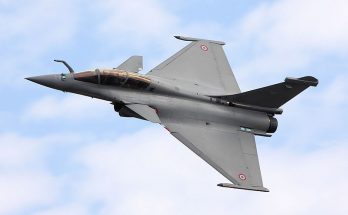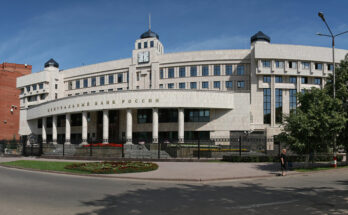
Having secured a 5th presidential term in March, Russian President Vladimir Putin is now rolling out his new Cabinet. In accordance with Russian law, the old Cabinet resigned on May 7, as Putin’s term began, but most of the same faces, including Prime Minister Mikhail Mishustin, will be returning to their posts once formally approved by the legislature – with a key exception.
In a surprise decision, Putin announced on May 12 that Sergei Shoigu, defense minister since 2012, would vacate the position, to be replaced with Andrey Belousov. Shoigu will now become the secretary of the Russian Security Council, replacing Nikolai Patrushev, a longtime Putin confidante who himself is now headed towards “another job” yet to be specified. Belousov will still need to be approved, but that is more a formality than a hurdle.
It’s hard not to see the shake-up as a form of demotion for Shoigu, particularly as it comes just weeks after the arrest of his deputy, Timur Ivanov, whom authorities suspect of receiving bribes “on a particularly large scale.” Ivanov’s alleged corruption wasn’t exactly a secret, prompting interesting questions about what his downfall at this juncture said about his boss. Shoigu’s performance as defense minister overseeing Russia’s war effort in Ukraine has been roundly criticized by Russia’s more nationalist elements, including the late Yevgeny Prigozhin, whose rebellion in June of last year was aimed at squarely at the ex-Defense Minister and the Chief of the General Staff, Valery Gerasimov.
If demotion it is, however, Shoigu was let down lightly, certainly far easier than Prigozhin would have had it. Shoigu’s new office may not be endowed with extraordinary power, but Patrushev wielded it effectively, leveraging his relationship with Putin to shape the Russian leader’s foreign policy thinking. Moreover, Shoigu will now oversee Russia’s Federal Service for Military-Technical Cooperation – responsible for the arms trade with foreign governments – which was formerly within the Ministry of Defense but has become directly subordinated to the presidency.
Whatever Putin’s rationale behind the change, ultimately he saw it as necessary to move Shoigu out to make way for new leadership at the Ministry of Defense that could better manage Russia’s military-industrial complex, which has grown in importance as Moscow ramps up defense spending.
In an analysis for The Spectator, Russia expert Mark Galeotti noted how Belousov is “an unexpected but logical choice,” given the function of the Ministry of Defense in wartime – backfilling the military’s demands. As Galeotti put it, “The defence minister, especially in time of war, is essentially an administrator, there to ensure that the military has the men and materiel it needs.” Belousov, an economist by training, will thus not be concocting battle strategy but rather managing the Russian war machine, which is no small task given the ongoing war and endemic corruption. Responsibility for running the war itself will remain with Gerasimov.
Kremlin spokesman Dmitry Peskov provided a significant amount of commentary after Belousov’s selection for defense minister, noting that given “well-known geopolitical circumstances, we are gradually approaching the situation of the mid-80s when the share of expenses for the security bloc in the economy was 7.4%. It’s not critical, but it’s extremely important.” Peskov added that defense-related spending presently stands at 6.7 percent of GDP, far higher than the annual pre-war spending of around 3-3.5 percent of GDP.
Russian defense spending has been channeled into the production of artillery shells, missiles, and drones, enabling Russian troops on the battlefield to drastically out-shoot their Ukrainian counterparts in terms of volume. Rising defense outlays have also propped up Russia’s economy, enabling it to produce its way out of recession even as the West imposed sanctions and froze access to some of the central bank’s reserves. Reliance on defense spending as an engine of economic growth is a double-edged sword, however, as it crowds out funding for and attention on other sectors. Peskov’s reference to the mid-1980s is interesting given that the Soviet Union’s high military budget in those days is generally cited as one of the factors in its eventual collapse.
Belousov fits into this picture as a figure who can improve the Defense Ministry’s efficiency, while tamping down corruption of the sort Shoigu deputy Ivanov was reportedly notorious for. Putin tolerates some corruption among his cronies and allies, provided they stay loyal to him, but winning the war in Ukraine has become his chief concern.
The incoming defense minister is also expected to champion new technologies for the Defense Ministry. While deputy prime minister, Belousov worked to drum up drone projects, in particular the “Unmanned Aircraft Systems” initiative, and thus his appointment to the Defense Ministry will in turn likely see further focus on unmanned technologies, which have taken on increasing importance in the war in Ukraine. As Peskov put it, “The one who is more open to innovations is the one who will be victorious on the battlefield.”
There are a few unknowns at this point regarding other key figures. Patrushev has likely not been sidelined, but his new assignment has not been disclosed yet. No changes have been made to the Armed Forces for now, but Gerasimov may yet be sacked for a new chief of the military. What is not expected to change, however, is Russia’s policy towards war in Ukraine – the Kremlin continues to believe that it can out-last Kyiv and the West, with Belousov’s appointment intended to ensure the resiliency of the defense-led economy for the long haul.
Military markets analyst, covering Eurasia, Middle East, and Africa.




